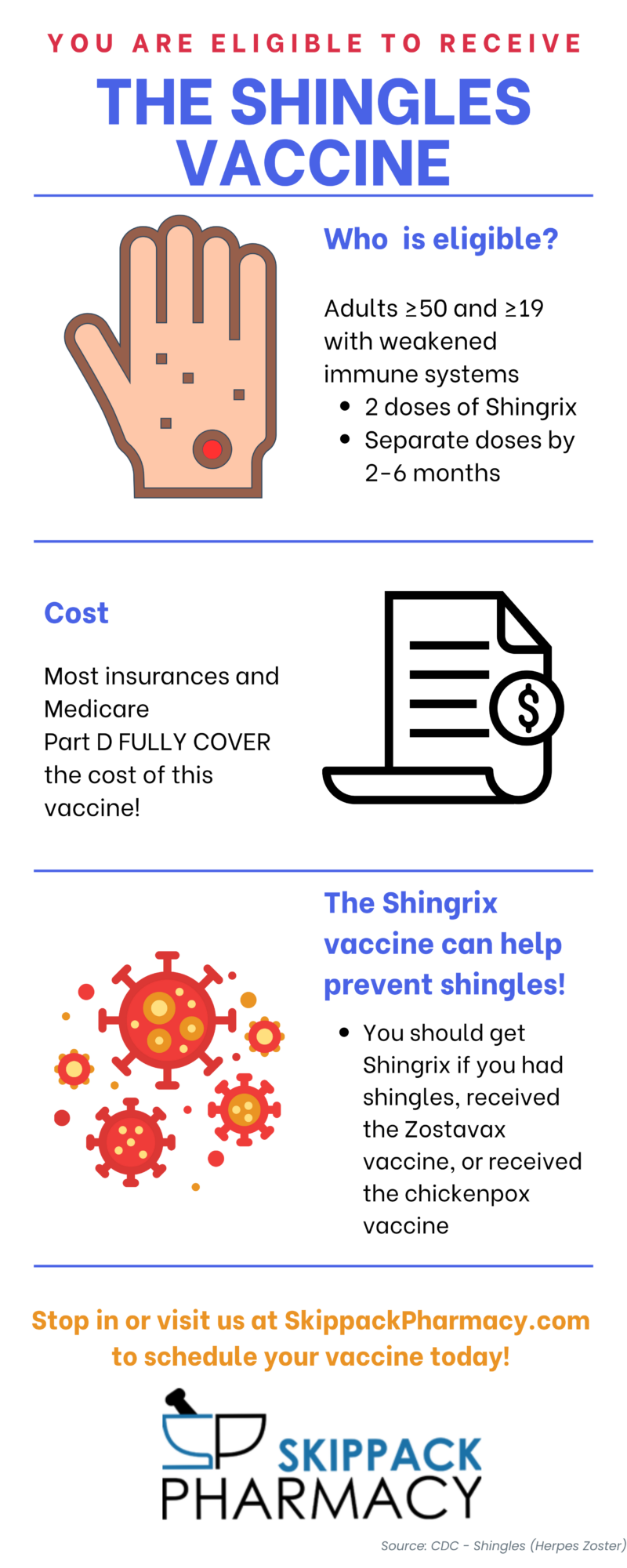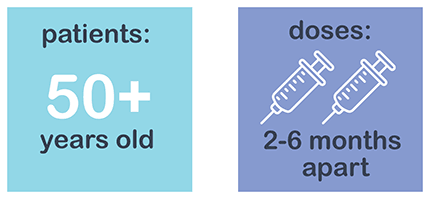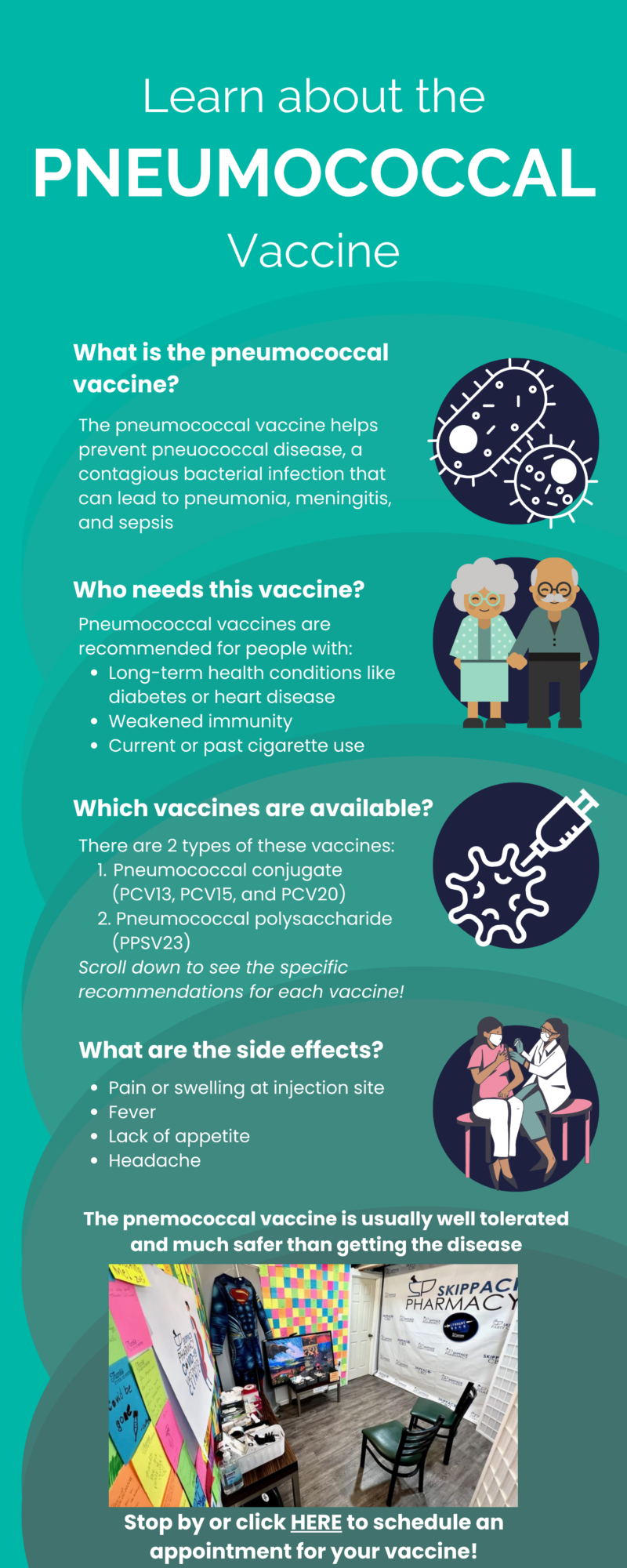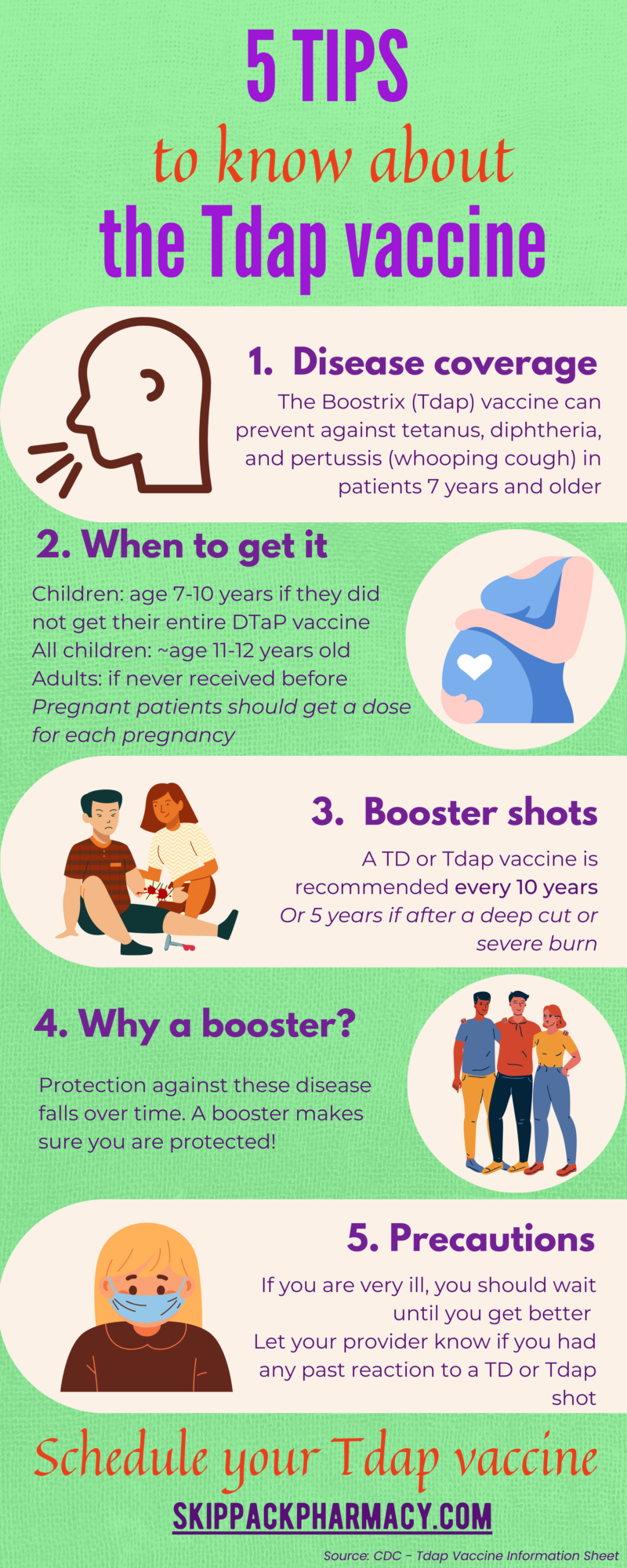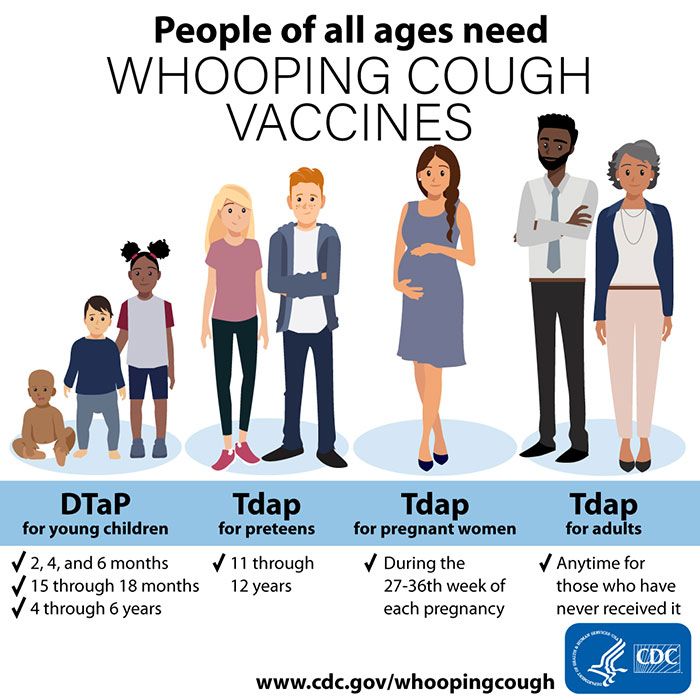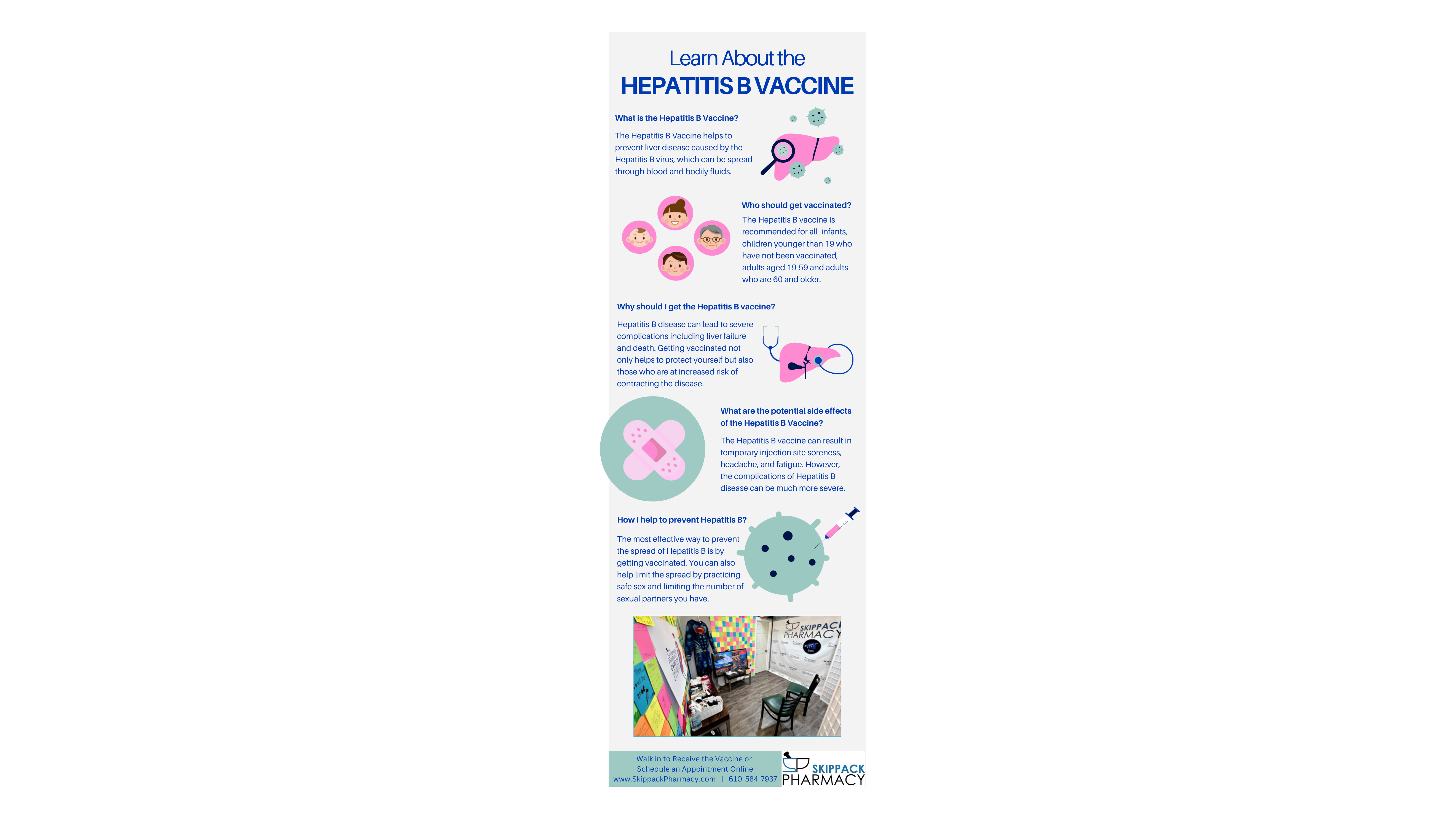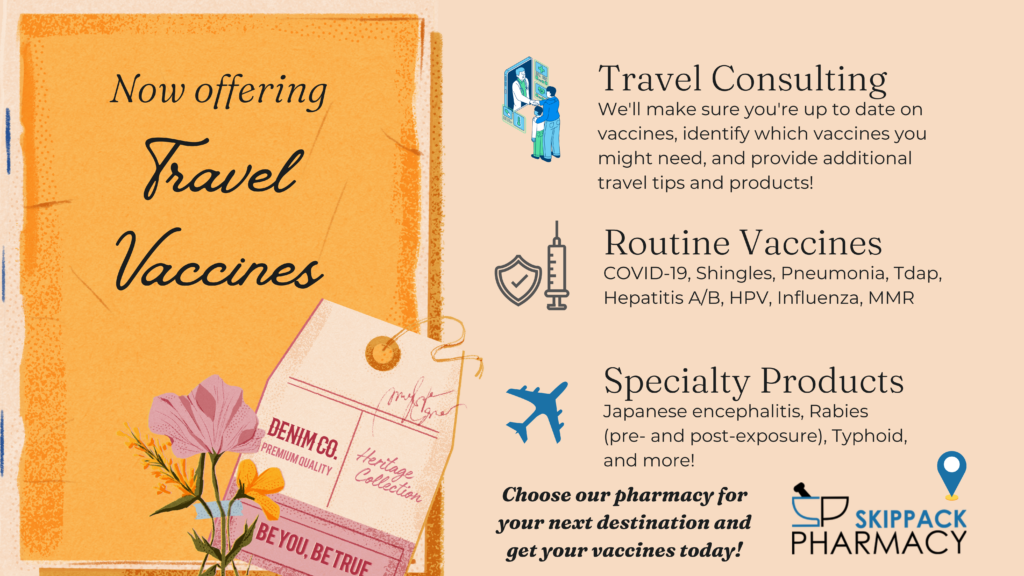We offer a multitude of immunizations including RSV, COVID, Flu, Shingrix, Pneumonia, Tdap, HepA, HepB, and Travel Vaccines
SCHEDULE A VACCINE BELOW
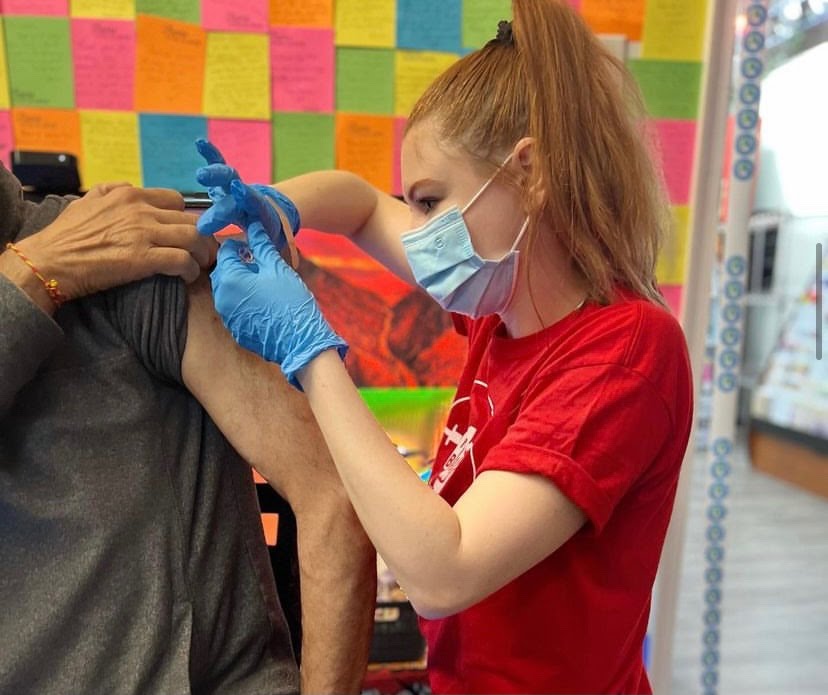
RSV Vaccine
Why get a RSV Vaccine?
RSV vaccines are recommended to prevent RSV disease. RSV disease includes illnesses caused by the respiratory syncytial virus (a common respiratory virus that can be serious for infants and older adults)
Infections may be mild, but in some cases RSV disease can be fatal or lead to long-term complications. For more information click here.
As of August 21, 2023, the RSV Vaccine (ABRYSVO) is approved for pregnant patients who are 32-36 weeks gestational. Schedule an appointment here.
How much does the RSV Vaccine cost?
Medicare Part D fully covers the cost with $0 copay for the patient. For commercial insurance and those without insurance, the cost of the vaccine may be up to $300. If there is a cost to the vaccine we will let you know.
Will this be an annual vaccine like the Flu Vaccine?
Similar to the influenza virus which peaks in the fall & winter each year, RSV follows a similar pattern; however, early clinical data shows that the RSV vaccine may be effective for as long as two season (two years). The vaccine currently is only available as stand-alone RSV vaccine; however, in future years, there may be a combined option for RSV-Flu Vaccine together.
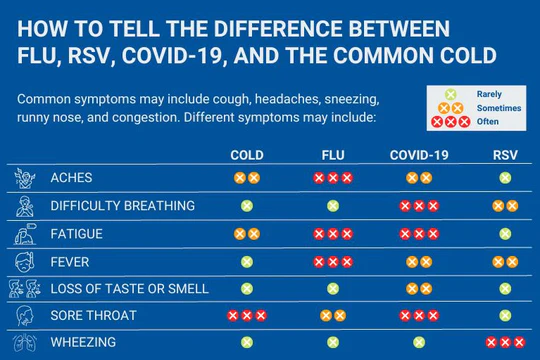
Why get a Pneumococcal Vaccine?
Pneumococcal vaccines are recommended to prevent pneumococcal disease. Pneumococcal disease includes illnesses caused by pneumococcal bacteria including: Pneumonia, Ear infections, Sinus infections, Meningitis, Infection of the blood
Infections may be mild, but in some cases pneumococcal disease can be fatal or lead to long-term complications. For more information click here.
Which Pneumococcal Vaccine do I need?
CDC recommends Prevnar 20 for:
Adults 50 years or older
Adults 19 through 49 years old with certain medical conditions or risk factors
How much does the Pneumococcal Vaccine cost?
Insurance typically covers the cost at $0 a copay. If there is a cost to the vaccine we will let you know.
Symptoms of Pneumococcal Disease

Tdap Vaccine
Who Should Get a Tdap (whooping cough) Vaccine?
Tdap stands for Tetanus, Diphtheria and Pertussis. Children 7 years of age and older are recommended to receive a single dose. Pregnant women are also recommended to receive a dose of Tdap during each pregnancy around the beginning of the third trimester. In addition a booster dose of Tdap is recommended for all patients every 10 years.
Why get a Tdap (whooping cough) Vaccine?
Tdap vaccine protects against tetanus, diphtheria, and pertussis. Tetanus enters the body through cuts or wounds and causes painful stiffening of the muscles and difficulty breathing which can be fatal. Diphtheria and pertussis spread from person to person. Diphtheria can cause difficulty breathing and lead to paralysis or death. Pertussis, also known as “whooping cough”, can cause uncontrollable coughing. Pertussis is serious especially in babies and young children and can cause pneumonia, brain damage or even death. For more information click here.
How much does the Tdap Vaccine cost?
Insurance typically covers the cost at $0 a copay. Out of pocket cost is $70. If there is a cost to the vaccine we will let you know.
Hepatitis B Vaccine
We currently offer Havrix vaccine for HepA, Engerix-B vaccine for HepB, and the Twinrix vaccine for HepA+HepB
Who Should Get a Hepatitis B Vaccine?
The Hepatitis B vaccine is part of the routine vaccinations for infants. Children and adolescents less than 19 years old who have not previously received a Hepatitis B vaccine should be vaccinated. Certain individuals who are at risk of Hepatitis B infection should also be vaccinated.
Why Get a Hepatitis B Vaccine?
The Hepatitis B vaccine helps to prevent Hepatitis B. Hepatitis B is a liver disease that may lead to serious lifelong illness. In an acute infection, a patient may experience fever, fatigue, loss of appetite, yellowing of the skin or eyes, dark urine and pain in muscles or joints lasting for a few weeks. In some cases, Hepatitis B can lead to a chronic infection which can lead to liver damage, liver cancer or even death. If a person is chronically infected with Hepatitis B, they can also spread the virus to others through blood and other bodily fluids. For more information click here.
Who Should Get a Hepatitis A Vaccine?
The Hepatitis A vaccine is part of the routine vaccinations for infants. Adults and adolescents who have not previously received a Hepatitis A vaccine should be vaccinated. The vaccine is also recommended for certain at-risk populations including international travelers. Twinrix is a combination vaccine for Hepatitis A and B and is approved for ages 18 and older.
Why Get a Hepatitis A Vaccine?
The Hepatitis A vaccine helps to prevent Hepatitis A. Hepatitis A is a serious liver disease that can cause symptoms such as fatigue, loss of appetite, stomach pain, nausea, yellowing of the skin or eyes, and dark urine. Most cases of hepatitis A resolve completely in a few weeks, but in rare cases can lead to liver failure to death. A person infected with hepatitis A can spread the disease to other people even if they are asymptomatic. For more information click here.
How much does the Hepatitis Vaccine cost?
Insurance typically covers the cost at $0 a copay. If there is a cost to the vaccine we will let you know.
Who Should Get a Hepatitis B Vaccine?
The Hepatitis B vaccine is part of the routine vaccinations for infants. Children and adolescents less than 19 years old who have not previously received a Hepatitis B vaccine should be vaccinated. Certain individuals who are at risk of Hepatitis B infection should also be vaccinated.
Why Get a Hepatitis B Vaccine?
The Hepatitis B vaccine helps to prevent Hepatitis B. Hepatitis B is a liver disease that may lead to serious lifelong illness. In an acute infection, a patient may experience fever, fatigue, loss of appetite, yellowing of the skin or eyes, dark urine and pain in muscles or joints lasting for a few weeks. In some cases, Hepatitis B can lead to a chronic infection which can lead to liver damage, liver cancer or even death. If a person is chronically infected with Hepatitis B, they can also spread the virus to others through blood and other bodily fluids. For more information click here.
What is the schedule for the HepB Vaccine?
The Engerix-B vaccine is a 3-dose series. You should get your second dose 1 month after the first dose and your third dose 6 months after the first dose.
Who Should Get a Hepatitis A Vaccine?
The Hepatitis A vaccine is part of the routine vaccinations for infants. Adults and adolescents who have not previously received a Hepatitis A vaccine should be vaccinated. The vaccine (Havrix) is also recommended for certain at-risk populations including international travelers. Twinrix is a combination vaccine for Hepatitis A and B and is approved for ages 18 and older.
Why Get a Hepatitis A Vaccine?
The Hepatitis A vaccine helps to prevent Hepatitis A. Hepatitis A is a serious liver disease that can cause symptoms such as fatigue, loss of appetite, stomach pain, nausea, yellowing of the skin or eyes, and dark urine. Most cases of hepatitis A resolve completely in a few weeks, but in rare cases can lead to liver failure to death. A person infected with hepatitis A can spread the disease to other people even if they are asymptomatic. For more information click here.
What is the schedule for the combo HepA/B Vaccine?
For Hepatitis A, we offer the combination HepA/B vaccine Twinrix, which is a 3-dose series. You should get your second dose 1 month after the first dose and your third dose 6 months after the first dose.
How much does the Hepatitis Vaccine cost?
Insurance typically covers the cost at $0 a copay. If there is a cost to the vaccine we will let you know.
Which vaccine do I need for travel?
The vaccines you need will depend on where you’re traveling and what you will be doing during your travels. Our team is able to assist in helping you determine which vaccines you may need.
Which travel vaccines are available at your clinic?
Travel vaccines we offer include: Typhoid (Typhim) at least 2 weeks prior to expected exposure, Hepatitis A (Havrix) at least 2 weeks prior to expected exposure, Hepatitis B (Engerix B).
Where can I find more information about Travel Vaccines?
Please view the CDC’s Website.
How much do Travel Vaccines cost?
We will attempt to process your vaccine through insurance; however, if your insurance does not cover the vaccine, we will inform you accordingly. For travel vaccines, please confirm with our staff prior to your visit to ensure we have the vaccine in stock & so you can confirm your cost on insurance or your out of pocket expense.
Measles Vaccine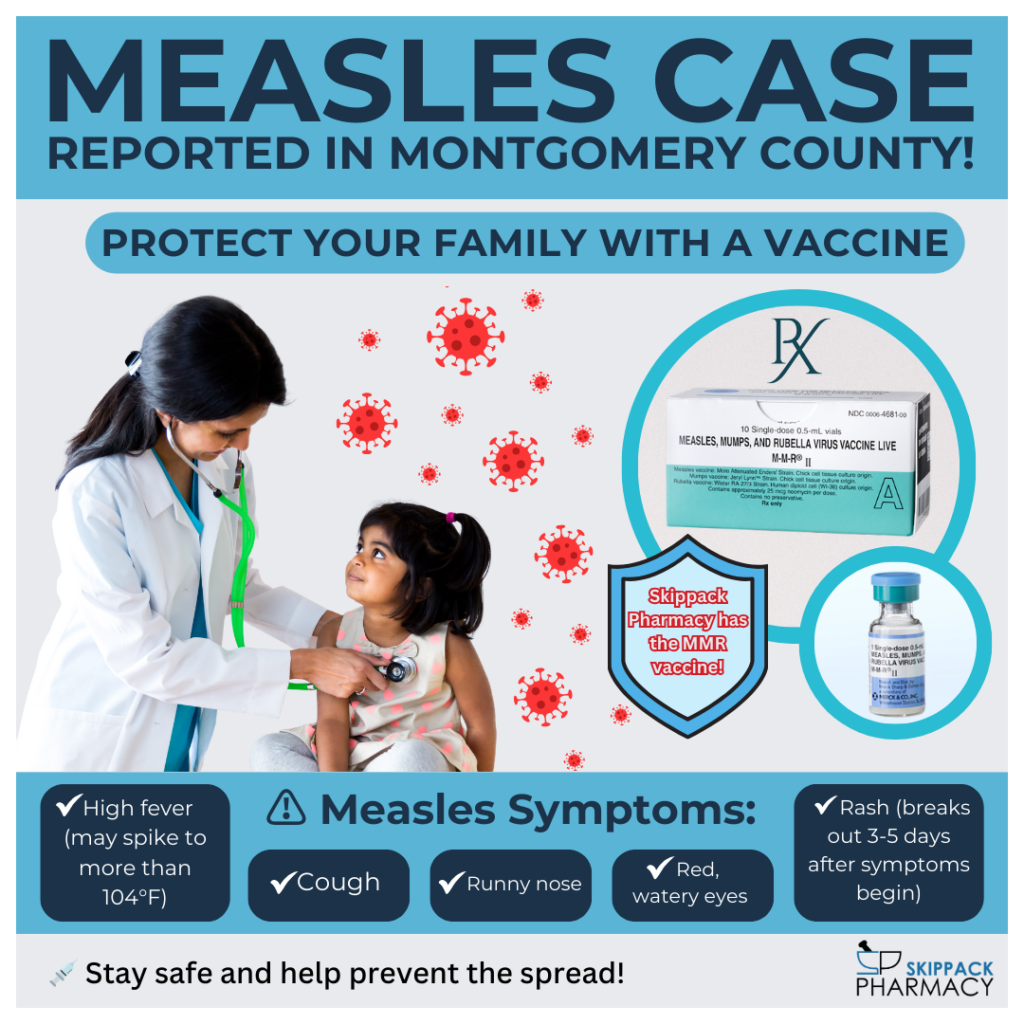
Who Should Get an MMR (Measles, Mumps, Rubella) Vaccine?
The MMR vaccine protects against three highly contagious diseases: measles, mumps, and rubella. It is recommended that:
Children receive two doses — the first at 12 to 15 months of age, and the second at 4 to 6 years old.
Teenagers and adults who have not been fully vaccinated or have no evidence of immunity should also get vaccinated.
College students, international travelers, and healthcare workers are especially encouraged to ensure they are fully protected.
In some cases, adults may need a booster dose if they are at increased risk or during an outbreak.
Why Get an MMR (Measles, Mumps, Rubella) Vaccine?
The MMR vaccine prevents:
Measles, which can cause high fever, rash, cough, runny nose, red eyes, and serious complications like pneumonia, brain swelling (encephalitis), and death.
Mumps, which leads to painful swelling of the salivary glands, fever, headache, and in severe cases, hearing loss and meningitis.
Rubella (also called German measles), which is usually mild in children but can be very dangerous for pregnant women, leading to miscarriage or serious birth defects in the baby.
Getting vaccinated not only protects you but also helps prevent outbreaks and protects vulnerable people who cannot be vaccinated.
How Much Does the MMR Vaccine Cost?
For most patients, insurance covers the MMR vaccine with a $0 copay under preventive care benefits.
For those paying out of pocket, the cost is usually around $70.
If there are any additional costs, your pharmacy or healthcare provider will inform you ahead of time.
What If I’m Not Sure If I Had the MMR Vaccine?
If you are unsure whether you received the MMR vaccine, your doctor can order a blood test to check for immunity. Otherwise, it is safe to receive another dose. There is no harm in getting vaccinated again if needed.
Common Side Effects of Non-COVID Vaccines
It is important to remember everyone reacts differently to vaccines, and side effects can vary based on the vaccine you receive. Some possible side effects that may occur include:
-
Soreness in the arm the vaccine was given in
-
Pain, redness or swelling in the arm the vaccine was given in
-
Mild fever
-
Headache
-
Feeling more tired than normal
-
Nausea or vomiting
-
Muscle pain
-
Chills

